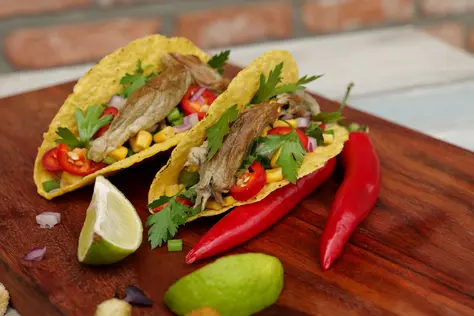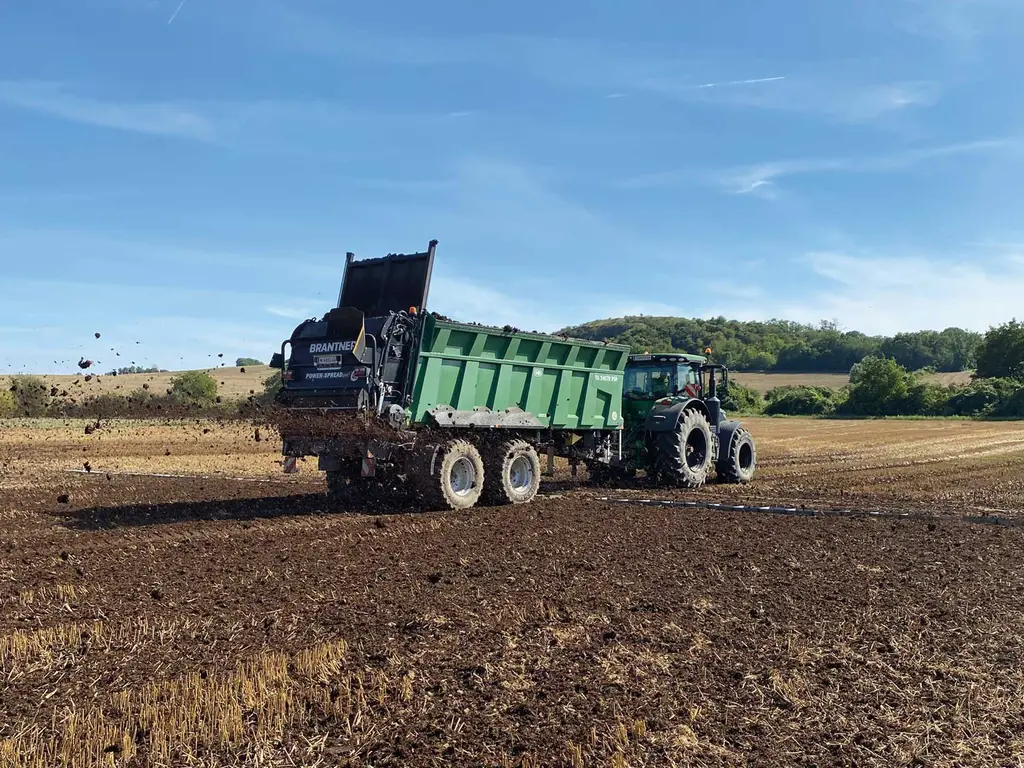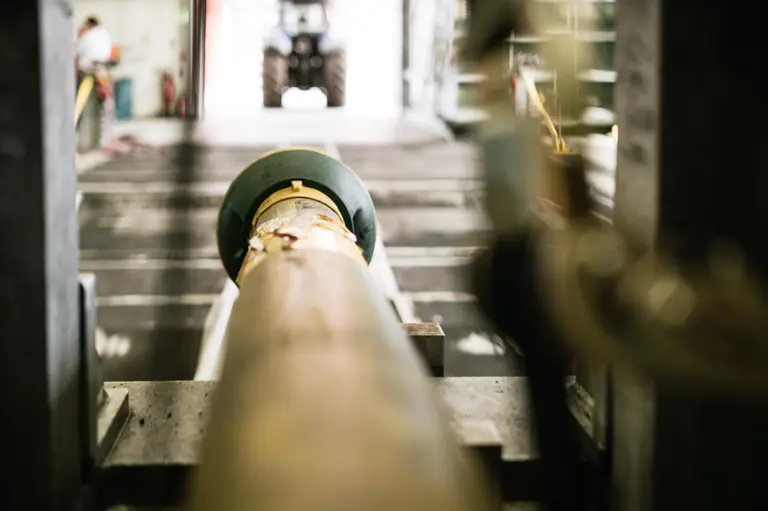
The stories of successful female professionals in agribusiness empower, inspire and set a vision for other female colleagues and especially for women starting their careers. With the Women in Ag Award, we give them a voice!
Yuliya Bondarenko, CEO, DLG Ukraine
Born in Kiev, Ukraine, graduate of the National Agrarian University of Ukraine and Leibniz University of Hannover in Germany in the field of international agribusiness. Yuliya has about 15 years of experience in Ukrainian and international companies in agricultural marketing, communication and project management. Since 2016, she has been the Managing Director of the Ukrainian subsidiary DLG Ukraine and successfully developed several exhibition platforms for arable farming and potato production such as the International Field Days and Potato Day. Since 2022, Yuliya Bondarenko has been working for DLG Service on the development of new exhibition areas for vertical agriculture and new food systems.

I share WIAG's ambition through its will to "contribute to a future where prices specifically for women will no longer be necessary". Against the background of a worldwide weakening of women's rights, it is more important than ever to take action.
Mathilde Brion, Agri-journalist, France
As a journalist since 2011, I specialised in the agricultural press in animal production in 2018. Especially in the field, I value the exchange of experiences with farmers and technicians, both men and women. I engage all year round to represent their voices. For me, the promotion of women in agriculture is part of an egalitarian approach at the level of society and nations.

As a proud member of the jury of the Women in Ag Awards, I am looking forward to see all the powerful women and the outstanding contributions they are making in agriculture. It is not only about the contribution they are making but also about being a leader and role model for others.
Judith de Vor, Dairy Farmer, The Netherlands
Not born and raised on a farm, I became a farmer when moving to my husbands' farm. Nowadays farming is my passion and I see so many beautiful things in agriculture. Since times are changing, I see women playing a more and more vital role in agriculture - from being silent behind a man towards owning, running and being the face of their farm and being the thriving force in sustainable food production. We need more women in agriculture and food and have their voices heard
CV:
Judith de Vor is a dairy farmer from the Netherlands. Together with her husband and 3 kids – as a fifth generation – they continue their love for animals and the land while raising cows. They are working in a sustainable and regenerative way. From open farm days to school classes, agricultural organizations and policymakers - thousands of people are welcomed on the farm each year. Judith is an advocate for agriculture, a member of the Global Farmer Network, part of TeamAgroNL and a Nuffield farming scholar. She promotes Dutch food and agriculture, is a columnist and speaks at several events all over the world. With a background in political science, agricultural policies have her interest. She is also an agricultural social innovator. Judith is supporting other farmers with new ideas, leadership and personal development.

Women have long been the backbone of agriculture, constituting approximately 43% of the global agricultural labor force according to fao.org and this means they are responsible for at least half of the world’s food production.
May Kanokwan Chodchoey, Group Head, Public and Regulatory Affairs, East-West Seed Company, Thailand
Despite their significant representation, women often face challenges such as limited access to land, financial resources, and education. Addressing these barriers is essential to unlocking their full potential and ensuring a more equitable and productive agricultural sector. As the global demand for sustainable and resilient food systems grows, so does the need for greater recognition and empowerment of women in the industry. It is a time to call for a strong execution to recognize women in AG to create a role model and networking platform to inspire our young generations.
CV:
May holds a PhD in Biotechnology from Mahidol University, Bangkok, Thailand. She began her career in Monsanto to guide and lead the quality, then she was the Executive Director of the regional seed association namely the Asia and Pacific Seed Alliance (APSA) where she had built a strong network with multi- stakeholders in the seed supply chain in both public and private sectors. Her expertise is in seed policy advocacy and capacity building programs on plant variety protection and international seed movement. Her current role at East-West Seed is to guide and monitor stakeholder engagement, policy and regulatory update, strengthening public relations and promoting the company's position and mission on serving smallholder farmers with innovative seeds and sustainable agricultural practices.

It’s time we move beyond the narrative of women “joining” agriculture and instead celebrate the fact that they’ve always been here—and now, they’re getting the opportunity to lead it too.
Belinda Lay, Business Partner – Coolindown Farms Chief Admin & Finance Exec (CAFÉ) coffee essential, Australia
Women have always been a part of agriculture—working alongside family, managing households, running books, raising children, and feeding shearing teams, all while contributing to the day-to-day running of farms and agribusinesses. Their presence is not new, but the visibility of their leadership is. What’s shifting now is that more women are stepping into formal leadership roles—on boards, in research, as innovators, and as voices shaping the future of our industry. It’s not that women are entering agriculture for the first time, it’s that we’re finally recognising the depth of their contribution and their capacity to lead.
Promoting and celebrating women in agriculture is important because it encourages diversity of thought, attracts future generations of women into the industry, and ensures that decision-making reflects the full spectrum of those contributing to the sector. Visibility matters—when women see themselves represented, they see what’s possible.
CV:
Belinda Lay is the Chief Administration & Finance Executive (CAFÉ) and business partner at Coolindown Farms, which is a family-owned mixed sheep and grain enterprise near Esperance, WA. Belinda has worked in the Agricultural Industry since leaving school in 1994, acquiring 30 years of Industry experience, during that time she has also attained three Diplomas in Business Studies, Agriculture and Project Management plus completed the full Australian Institute of Company Directors Course in 2020. In 2019 Belinda won the WA Agrifutures Rural Women's Award for her pilot project looking at GPS tracking of sheep. In 2021, she partnered with Meat & Livestock Australia (MLA) to run multiple activities simultaneously looking at Return on Investment of IoT device on a commercial farm and has a deep understanding of emerging innovations and technologies connected to the farm, in particular livestock, this includes the full utilisation of EIDs and the data available for decision making. Belinda holds an Animal research licence and has undertaken research activities for third parties during Covid. Belinda has represented livestock producers on the board of the Western Australian Meat Industry Authority (WAMIA) for 4 years and has recently joined their ARC committee. In 2024 Belinda was selected to sit on the Inaugural Industry Advisory Committee for the Zero Net Emission Agriculture (ZNEAg) CRC, in addition to these roles Belinda holds numerous volunteer governance roles in her local community.
![[Translate to English:] LaKisha Odom [Translate to English:] Portraitbild LaKisha Odom](/fileadmin/images/Awards/WiA/2025/Jury/LaKisha-Odom-.png)
I am so honored to serve on the jury of the Women in Ag Awards. I am so excited to learn more about the amazing women leaders in Agriculture and to play a role in elevating and acknowledging outstanding contributions they are making. Women play an essential role in Agriculture and it’s a wonderful opportunity to highlight and celebrate these amazing leaders.
LaKisha Odom, Scientific Program Director at the Foundation for Food and Agriculture Research, United States of America
LaKisha Odom works at the intersection of sustainability and diversity, equity, and inclusion (DEI) in agriculture, focusing on innovative solutions for sustainable food production and economic viability for producers. Often one of the few in key discussions who looks like her, she believes diversity drives innovation. Her passion is creating inclusive spaces where all voices contribute to addressing global challenges like climate change, population growth, and food security. At the Foundation for Food & Agriculture Research (FFAR), she leads DEI efforts and research programs that support regenerative farming, healthier food access, and diverse farmer adoption of sustainable practices.

As a practicing agricultural engineer, I observed that there are more women in agriculture before when there was less machinery utilized than these days where most farming operations are mechanized.
Dr. Jane Tapel, Director at Bureau of Agricultural and Fisheries Engineering Philippines
When I was a little girl, I witnessed women mostly mothers engaged in tilling their own small piece of land in order to augment family’s income. Other women undertake farm related activities such as value-adding processing their farm produce to have food/delicacies and/or selling their excess farm produce around the barangay. In most cases, women are usually frontline in planting rice manually, maintaining the fields (pulling weeds, repairing paddies), harvesting, drying the grains and sometimes manually pounding the palay to have the clean rice. These farming activities seems very hard and full of drudgery; but it is an alternative to boost family income and provide fresh and nutritious foods for their children.
I pursued agricultural engineering in college which is one of the priority courses for scholarship with the thought that I can be of help to farmers particularly women to have the chance to enjoy farm works by making easy it an easy job and profitable.
As a practicing agricultural engineer, I observed that there are more women in agriculture before when there was less machinery utilized than these days where most farming operations are mechanized. I had deduced that most women cannot operate the machinery thus they are displaced in the operations. With this scenario, there is a need to develop gender-friendly machinery and train such women on mechanized farming to cope up with the change in technology. The creation of the Bureau of Agricultural and Fisheries Engineering (BAFE) slowly contributed in transforming Philippine agri-fisheries sector to modernized farming system. The BAFE, considered as the engineering arm of the Philippine Department of Agriculture, lead the crafting of the National Agriculture and Fisheries Modernization Plan which is the basis for the infrastructure and machinery interventions by government. The plan considered gender sensitiveness in its machinery components’ design, fabrication, operation and maintenance. Hence, this gives equal chances to all gender where we can realized the unique roles and contributions of women in pushing for sustainable development. As the Assistant Director of BAFE, I ensure that women (particularly engineers) can have equal opportunity with male counterparts as we consider competency and job performance as major criteria. This strategy has impact on more women pursuing agricultural engineering.

We need more women in agriculture because diversity fuels innovation. Women bring unique perspectives that strengthen decision-making, foster collaboration, and drive sustainable growth. Promoting women isn’t just fairness—it’s essential for building a resilient future for our industry.
Neamat ElTazi, Cofounder and COO of PoultrySync, Egypte
Neamat ElTazi is the Cofounder and COO of PoultrySync, a tech platform revolutionizing poultry farming through data-driven solutions. With a background in business intelligence for global organizations like the World Bank and American Electric Power, she brings deep expertise to agricultural innovation. PoultrySync, developed in collaboration with international poultry experts, operates in three countries and helps farmers improve efficiency, flock health, and profitability. She is also an assistant professor at Cairo University and serves on the advisory board of the AnimalAgTech Summit in Amsterdam. She is a recognized thought leader in poultry technology and a frequent speaker at global industry events.













![[Translate to English:] Kim Schoukens](/fileadmin/images/Awards/WiA/2025/Jury/Schoukens_rund.png)